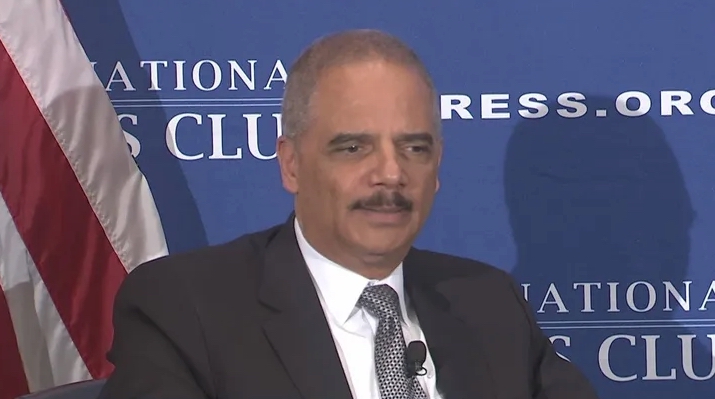This weekly newsletter, focused on environmental issues, highlights relevant analysis done by the John Locke Foundation and other think tanks, as well as items in the news.
1. Krugman uses Keynesian economics to claim ozone rule would have stimulated the economy
New York Times columnist, blogger, and Nobel Prize winning economist Paul Krugman recently wrote that President Obama’s decision to scrap the EPA’s proposed new rules on ground level ozone was a bad idea, claiming that the regs would have stimulated the economy. This is in spite of the fact that many have argued that they would have been by far the most costly environmental regulations ever, which is the reason why Obama put a stop to their implementation. But Krugman claims that their costs were essentially a good thing because they would force thousands of businesses to spend money that they are currently sitting on.
In Keynsian lingo, the economy is in a "liquidity trap" where individuals and businesses just refuse to spend. So any policy that forces them to spend money, on anything, is considered good.
This article by Steve Sexton on the Freakonomics Blog explains why Krugman, even in the case of an extreme liquidity trap which Keynesians argue we are in, misses the basic economics of opportunity costs and invokes what has commonly become known as "the broken window fallacy." In a nutshell, it is the idea that you can create wealth by destroying it.
2. Huntsman’s "98 percent of scientists agree" claim in last week’s debate
In last week’s Republican presidential debate, sponsored by MSNBC and Politico, Utah Gov. Jon Huntsman, the only serious Al Gorite in the GOP presidential field, claimed that there is a 98 percent consensus among climate scientists on the issue of global warming. So the question arises, what was he referring to?
The Heartland Institute’s James Taylor, writing for Forbes.com, dissects the questions asked in the survey Huntsman referred to and what the answers actually mean. What Taylor shows is that the survey was pretty trivial. Most importantly, Taylor — a well-known climate skeptic — would himself have fallen into that 98 percent had he been part of the survey.
Here’s Taylor’s explanation:
To illustrate, I will answer the survey:
Q1. "When compared with pre-1800s levels, do you think that mean global temperatures have generally risen, fallen, or remained relatively constant?"
James Taylor Answer: Risen
Q2. "Do you think human activity is a significant contributing factor in changing mean global temperatures?"
James Taylor Answer: Yes
Regarding the first question, in the early 1800s the world was in the grips of the Little Ice Age, which brought about the planet’s coldest temperatures since the last ice age epoch ended roughly 10,000 years ago. The answer to Question 1 is not only "risen," but more appropriately (and sarcastically) "Duh!" (And it’s a good thing the answer is "risen." Only the most zealous and delusional of global warming activists would argue the Little Ice Age brought about beneficial climate conditions.)
Regarding the second question, is human activity a significant contributing factor? Notice how the question did not say "sole factor," "majority factor," or even "primary contributing factor." Rather, the term is merely "significant contributing factor." More precisely, if human activity is not a "significant" contributing factor then it must be an "insignificant" contributing factor. What is the threshold between "significant" and "insignificant"? Five percent? Ten Percent? The threshold of "insignificance" is certainly no higher than that.
So, are humans responsible for at least 10 percent or so of recent global warming? In other words, are humans responsible for roughly — and merely — 0.06 degrees Celsius of warming during the past century? Most global warming "skeptics" certainly believe that!
My guess is that Huntsman wasn’t purposely being misleading. He’s just clueless.
3. … and then there’s Rick Perry on the EPA (apparently he’s not a Krugmanite)
"… tell the EPA that we don’t don’t need you monkeyin’ around and fiddlin’ around and gettin’ in our business on every kind of regulation that you can dream up. You’re doin’ nothin’ more than killin’ jobs. It is a cemetery for jobs at the EPA."
— As quoted by Junk Science.com’s Steve Milloy
4. Weekly Ozone Report
Each week during the summer ozone season this newsletter will report how many, if any, high-ozone days had been experienced throughout the state during the previous week, where they were experienced, and how many have been recorded during the entire season to date. While many environmental groups express concern about air quality, the John Locke Foundation is the only organization that keeps up-to-date track of the actual ozone data and reports it in an unfiltered manner on a regular basis.
The ozone season began on April 1 and ends October 31. All reported data are from the North Carolina Division of Air Quality, which is part of the state’s Department of Environment and Natural Resources.
During the period from September 5 through September 11 there were no reported high-ozone readings on monitors across the state of North Carolina. So far this season there have been 96 readings on various North Carolina monitors that have exceeded federal standards of 0.75 parts per billion. These have occurred over a period of 25 days.
Click here for the Environmental Update archive.


